NSYSU applied for the establishment of the College of Medicine and tied a strategic alliance with Kaohsiung Veterans General Hospital
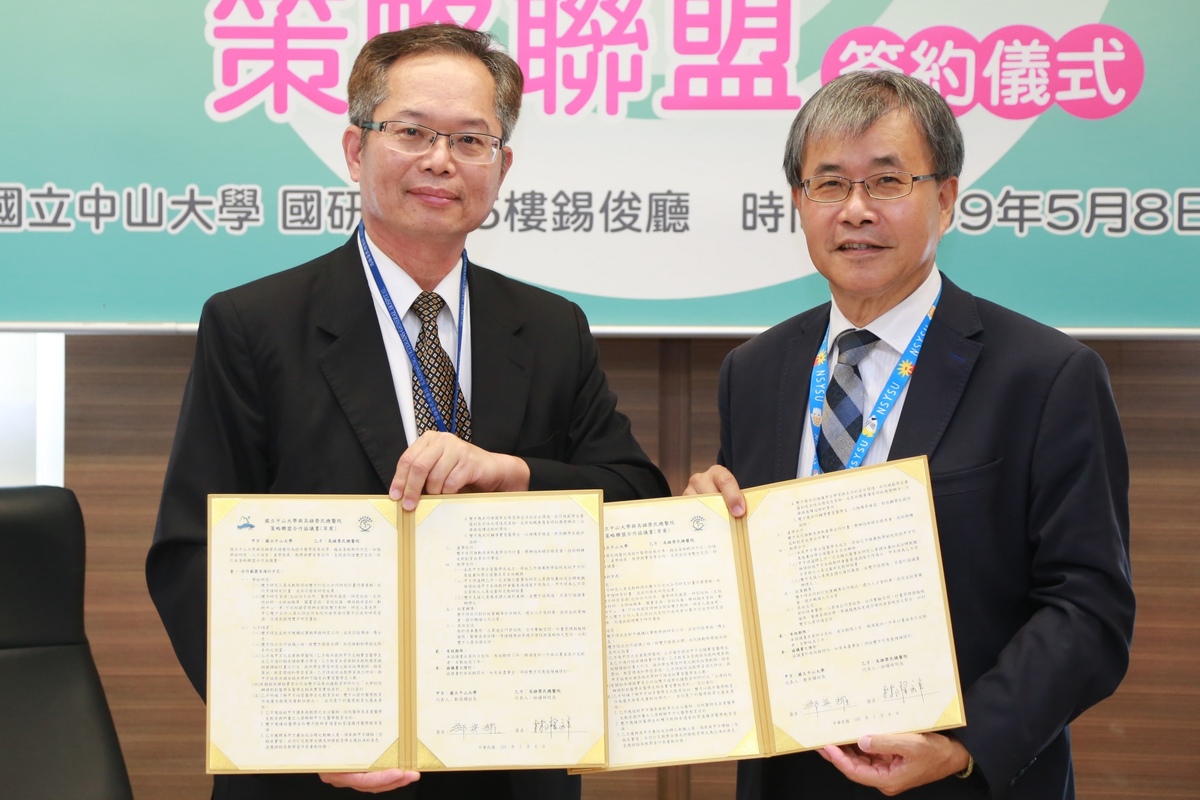
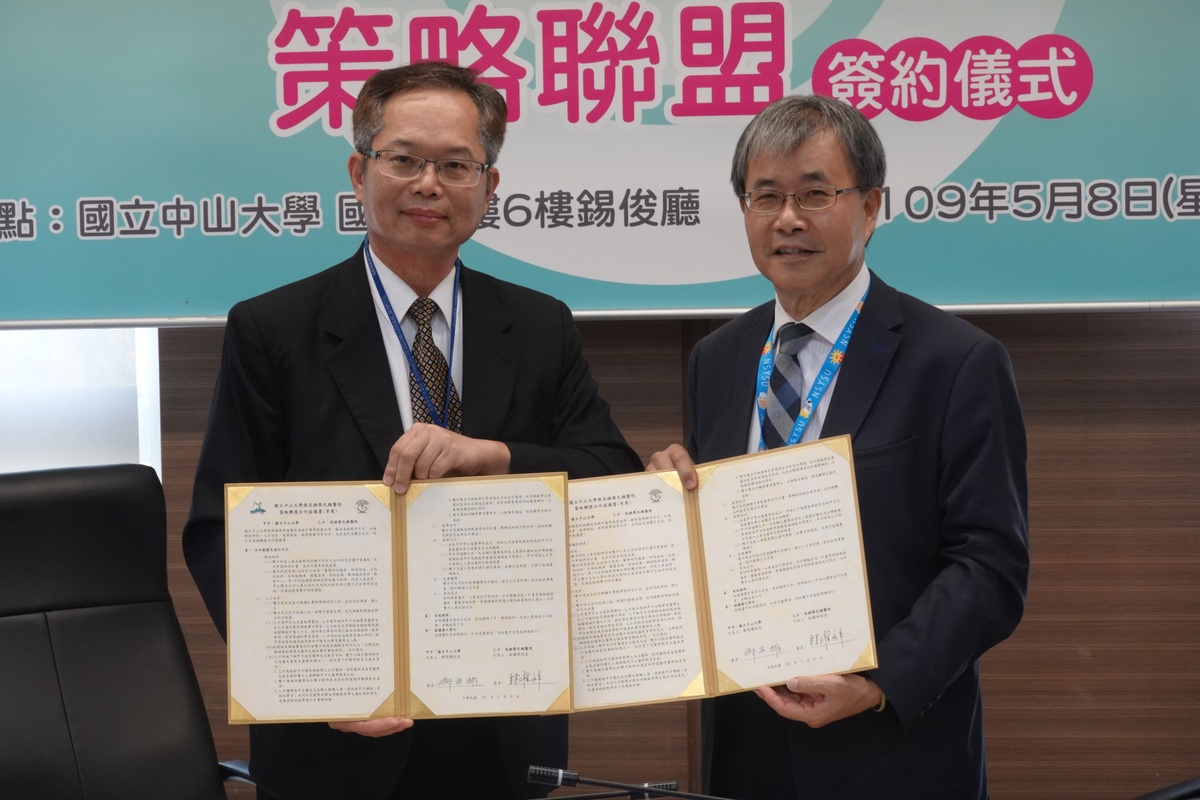
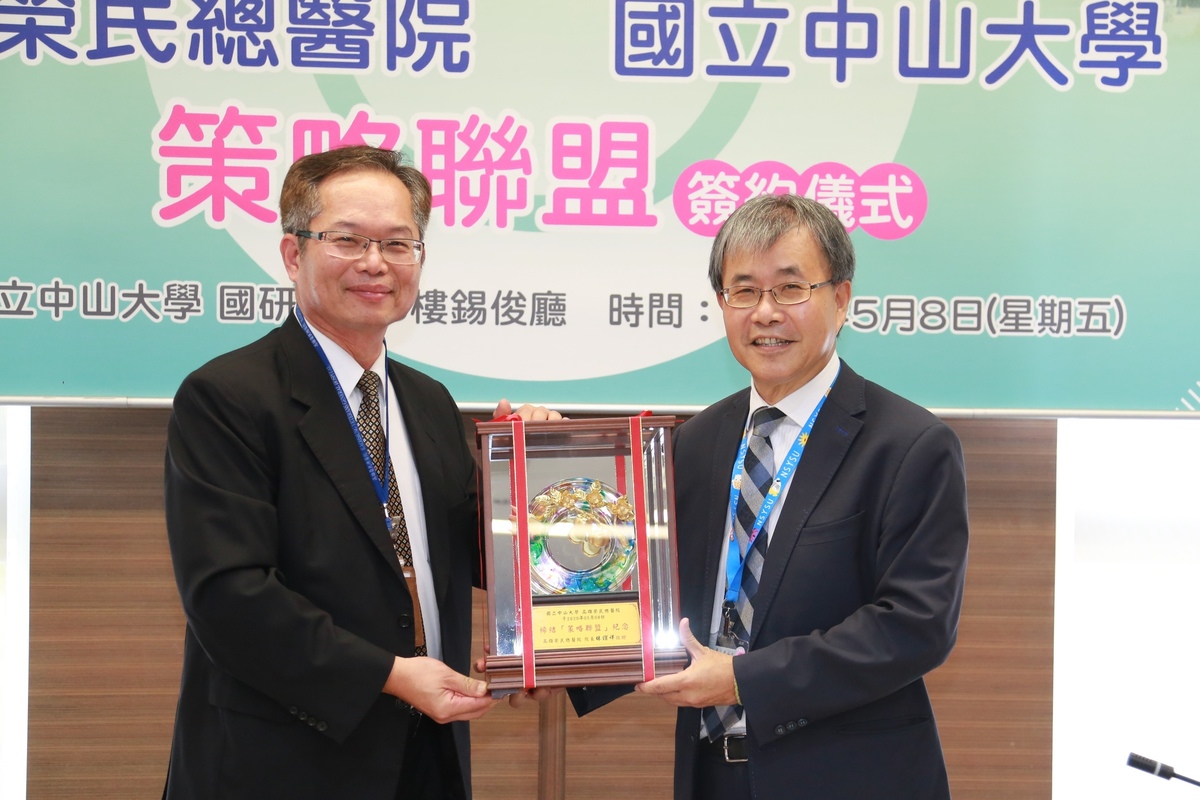
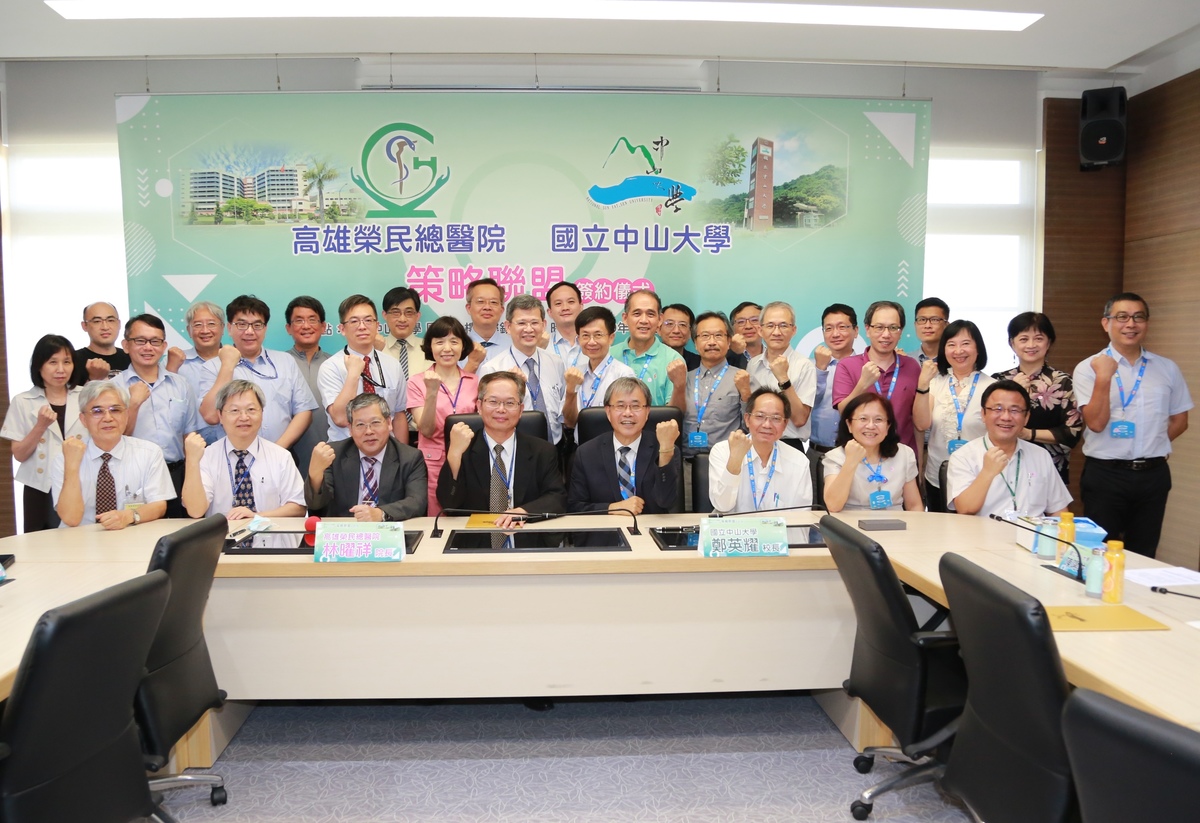
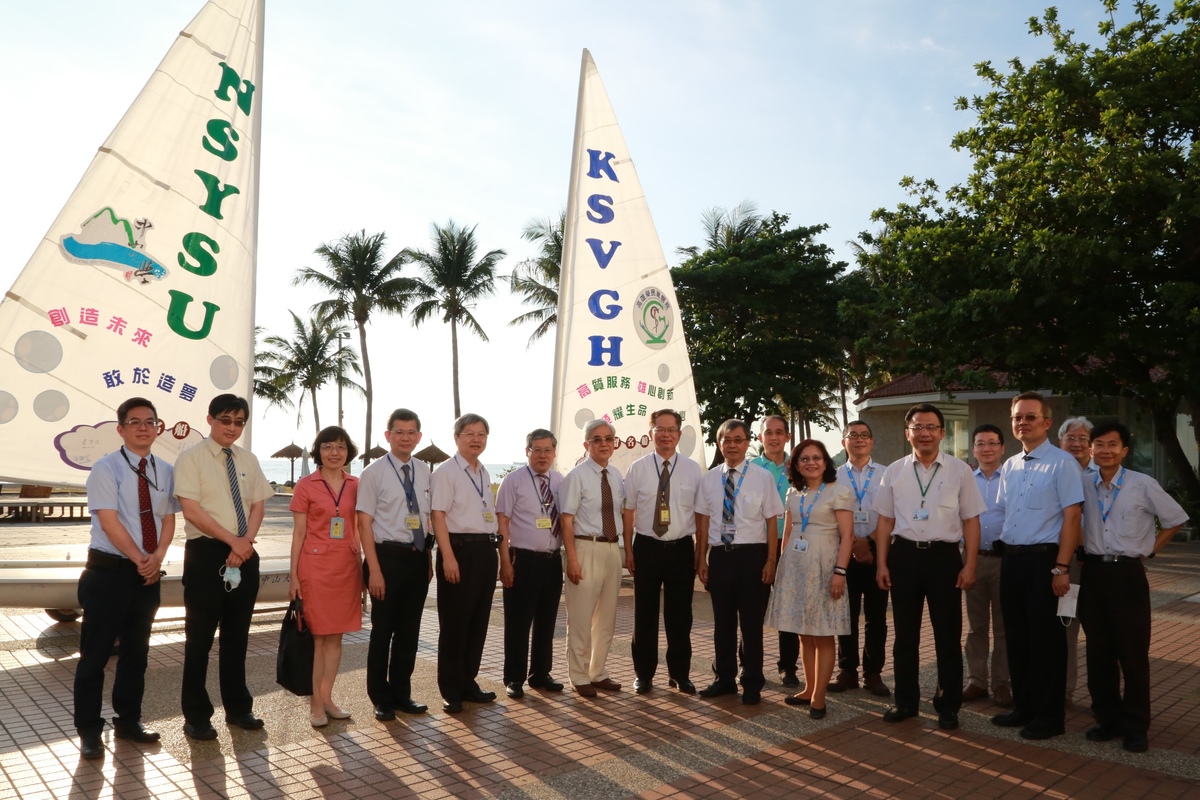
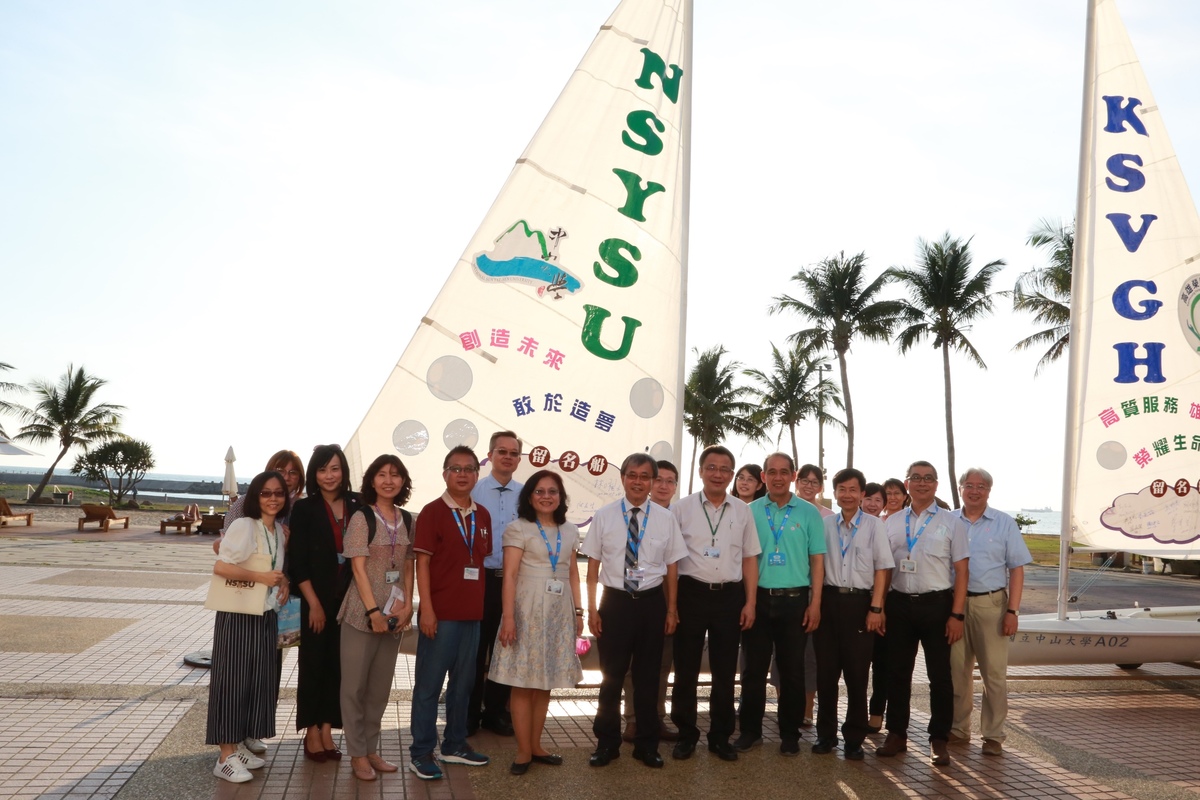
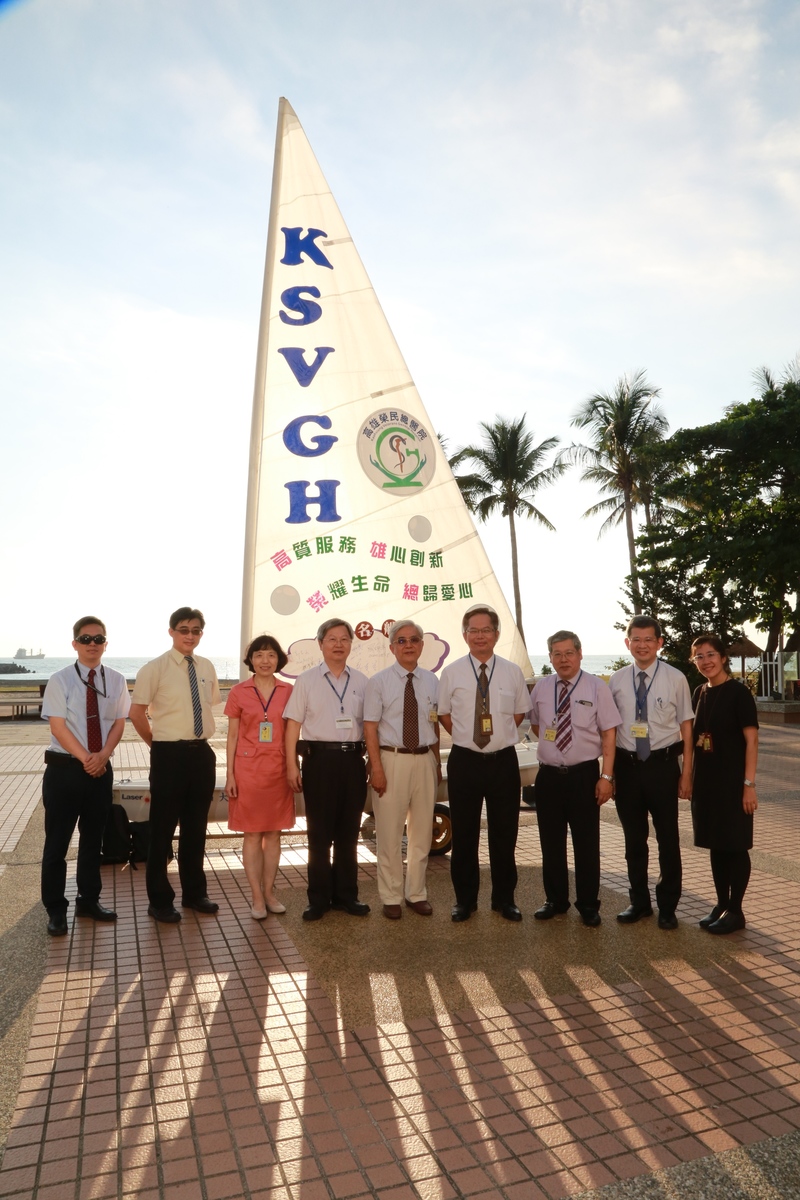
National Sun Yat-sen University started the process of establishing the College of Medicine and signed an agreement on a strategic alliance with Kaohsiung Veterans General Hospital (KVGH), which will serve as the main teaching hospital. Students of the third and fourth year of the Department of Post Baccalaureate Medicine at the University will attend clinical practicum training at KVGH as interns. Both parties will make a contribution to society’s well-being and nurture professionals with humanistic values and knowledge of technology. NSYSU President Ying-Yao Cheng said that more than 100 days of the COVID-19 epidemic prevention period have passed and that in the future, NSYSU and KVGH will join hands to prevent any possible epidemics. Should any similar communicable disease appear on a large scale, NSYSU and KVGH will provide first-line medical professionals and newest medical technologies for Southern Taiwan to safeguard citizens’ health.
In 2020, besides founding the Institute of Biotechnology and Pharmaceutical Research and the Institute of Precision Medicine, NSYSU applied for the establishment of the Department of Post Baccalaureate Medicine. Excellent medical resources of Kaohsiung Veterans General Hospital, such as instruments for medical research, research facilities, biomaterials, biological database, library resources, information appliances, clinical data, and Laboratory Animal Center, together with NSYSU can greatly improve the quality of medical education. With the agreement signed, both parties will form a working group to collaborate on establishing and launching new master and Ph.D. programs, departments and institutes, and will become a strategic place for educating medical students to care for the society’s well-being.
“Every day, there are new developments in response strategies to different viruses, which cause large-scale harm, thus, the medical personnel needs to be equipped with more interdisciplinary knowledge. NSYSU President Ying-Yao Cheng and KVGH Superintendent Yaoh-Shiang Lin agreed that if the application for the establishment of the College of Medicine is accepted, KVGH Vice Superintendent for Education Yao-Shen Chen will lead the Department of Post Baccalaureate Medicine, which will follow the global trends of medical education thanks to a team of skilled teachers, carefully recruit students, and provide the most advanced equipment and innovative medical education to educate medical professionals and safeguard the society’s well-being.
The COVID-19 pandemic is expanding; President Cheng emphasized that medical staff make 4 to 6 ward rounds per day, which carries a risk of contagion. Keeping their spirits up is undoubtedly the key to effective epidemic prevention. The team of the Department of Electrical Engineering, NSYSU, created the first contact-less biological sensing system, which can sense the patient’s breathing, heartbeat, and body temperature remotely for 24 hours a day. This system allows the hospital to test the patient’s condition remotely and reduce the risk of contagion. Besides, laser mass spectrometry developed by Rapid Screening Research Center for Toxicology and Biomedicine (RSRCTB) was successfully applied in clinical rapid screening, and in the future, it can be applied in rapid screening for viruses. Aerosol Science Research Center, the only of such kind in Asia, has invested in research on preventive medicine related to PM 2.5, aerosol biomedicine, and transmission of SARS-CoV-2 by PM 2.5 and has investigated the possible causes and treatments of diseases of the lungs, respiratory tract and cardiovascular diseases.
KVGH Superintendent Yaoh-Shiang Lin said, that KVGH is the only public medical center in Southern Taiwan, supporting and formulating national medical policies, providing care to veterans, preventing and curing communicable diseases, sparing no efforts in providing disaster and emergency treatment, different levels of medical service, long-term care services, and has been winning awards for the quality of its elderly care for many consecutive years, setting an example for other hospitals in Taiwan. KVGH has been investing in improving the quality of specialized fields of medicine, providing good medical services, innovative medical technologies, and enhancing medical education. This collaboration is expected to help resolve the problem of insufficient medical resources in indigenous peoples’ and rural areas and outer islands.
In 2020, besides founding the Institute of Biotechnology and Pharmaceutical Research and the Institute of Precision Medicine, NSYSU applied for the establishment of the Department of Post Baccalaureate Medicine. Excellent medical resources of Kaohsiung Veterans General Hospital, such as instruments for medical research, research facilities, biomaterials, biological database, library resources, information appliances, clinical data, and Laboratory Animal Center, together with NSYSU can greatly improve the quality of medical education. With the agreement signed, both parties will form a working group to collaborate on establishing and launching new master and Ph.D. programs, departments and institutes, and will become a strategic place for educating medical students to care for the society’s well-being.
“Every day, there are new developments in response strategies to different viruses, which cause large-scale harm, thus, the medical personnel needs to be equipped with more interdisciplinary knowledge. NSYSU President Ying-Yao Cheng and KVGH Superintendent Yaoh-Shiang Lin agreed that if the application for the establishment of the College of Medicine is accepted, KVGH Vice Superintendent for Education Yao-Shen Chen will lead the Department of Post Baccalaureate Medicine, which will follow the global trends of medical education thanks to a team of skilled teachers, carefully recruit students, and provide the most advanced equipment and innovative medical education to educate medical professionals and safeguard the society’s well-being.
The COVID-19 pandemic is expanding; President Cheng emphasized that medical staff make 4 to 6 ward rounds per day, which carries a risk of contagion. Keeping their spirits up is undoubtedly the key to effective epidemic prevention. The team of the Department of Electrical Engineering, NSYSU, created the first contact-less biological sensing system, which can sense the patient’s breathing, heartbeat, and body temperature remotely for 24 hours a day. This system allows the hospital to test the patient’s condition remotely and reduce the risk of contagion. Besides, laser mass spectrometry developed by Rapid Screening Research Center for Toxicology and Biomedicine (RSRCTB) was successfully applied in clinical rapid screening, and in the future, it can be applied in rapid screening for viruses. Aerosol Science Research Center, the only of such kind in Asia, has invested in research on preventive medicine related to PM 2.5, aerosol biomedicine, and transmission of SARS-CoV-2 by PM 2.5 and has investigated the possible causes and treatments of diseases of the lungs, respiratory tract and cardiovascular diseases.
KVGH Superintendent Yaoh-Shiang Lin said, that KVGH is the only public medical center in Southern Taiwan, supporting and formulating national medical policies, providing care to veterans, preventing and curing communicable diseases, sparing no efforts in providing disaster and emergency treatment, different levels of medical service, long-term care services, and has been winning awards for the quality of its elderly care for many consecutive years, setting an example for other hospitals in Taiwan. KVGH has been investing in improving the quality of specialized fields of medicine, providing good medical services, innovative medical technologies, and enhancing medical education. This collaboration is expected to help resolve the problem of insufficient medical resources in indigenous peoples’ and rural areas and outer islands.
Click Num:
Share
